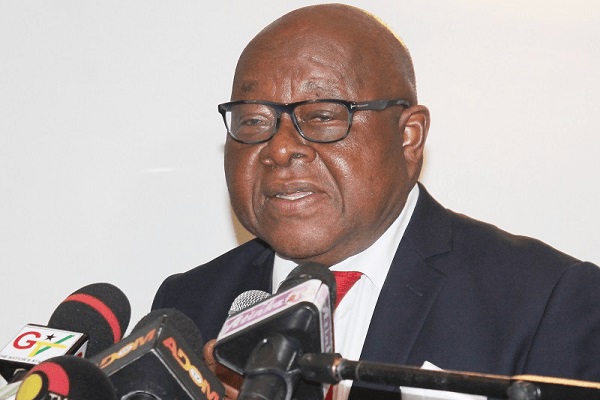
Why opposision MPs cannot initiate removal of other MPs – Prof Oquaye on misusing Article 97 for political gain
Former Speaker of Parliament, Professor Aaron Mike Oquaye, has clarified that opposition members of Parliament (MP) cannot initiate the removal of fellow MPs under Article 97(1)(g) of the 1992 Constitution without a formal complaint from the political party to which the MP belongs.
He explained that this constitutional provision was designed to protect political parties from losing MPs due to pressure or inducement.
Speaking in a television interview with TV3 on Wednesday night, [Oct 16, 2024], Prof Oquaye explained that the provision was introduced to prevent “carpet-crossing”, the practice where MPs switch parties due to fear or incentives.
“In 1969, the constitution put in place a protective measure to shield political parties from having their members move out of fear or inducement,” he stated.
He emphasised that Article 97(1)(g) can only be triggered by the MP’s political party and not by individual MPs or the opposition.
Recalling a similar case during his time as Speaker, involving the Fomena MP, he said, “When the political party complained, I wrote to the MP and gave him seven days to respond, giving him the opportunity to defend himself.”
Prof. Oquaye stressed that MPs must be given a fair hearing before any action is taken against them, citing the legal principle of audi alteram partem (the right to be heard).
“You cannot take any action against him or her without applying the audi alteram partem rule,” he said
He further explained that opposition MPs cannot use Article 97(1)(g) as a tool to target majority MPs, as this could disrupt the political party system.
“It would be dangerous if a party with a majority in parliament could bring complaints to remove opposition MPs without any formal process,” he cautioned.
As Speaker of Parliament Alban Bagbin prepares to rule on a motion by MP for Tamale South, Haruna Iddrisu, seeking to declare the seats of four MPs vacant, Prof. Oquaye warned that using Article 97(1)(g) without proper procedure could have far-reaching consequences.
